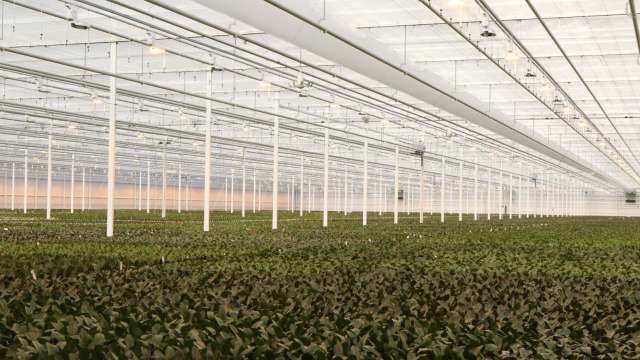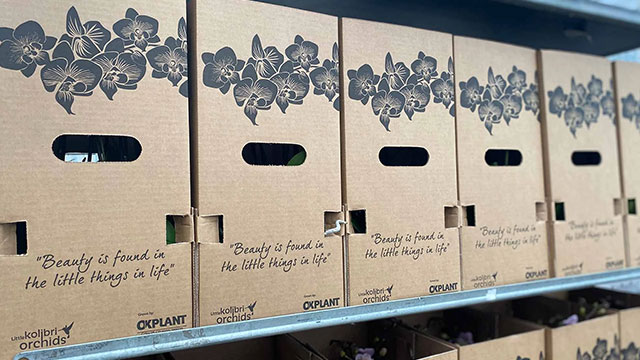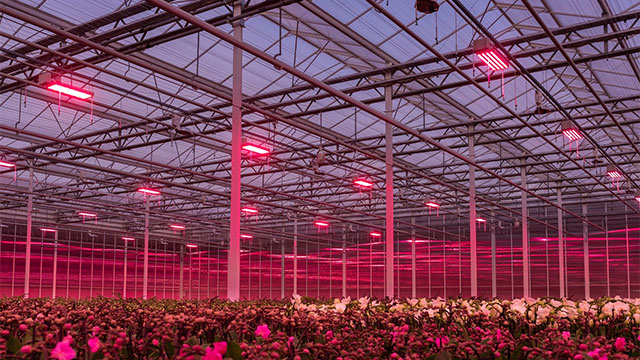OK Plant grows strong and compact plants with DCM

Satisfied customer: OK Plant | www.okplant.nl
Crop: Orchids, green plants and various seasonal products
Location: Naaldwijk and Maasdijk
Area: 10 hectare
OK Plant is a pot plant company located in Westland, South Holland. At their sites in Naaldwijk and Maasdijk, OK Plant produces more than 5 700 000 high-quality orchids, 1 200 000 green plants and 1 300 000 various seasonal products every year, including the company’s own brands Little Kolibri Orchids and Little Lizard Greens, with a team of 170 workers.
Richard Driessen, cultivation specialist at OK Plant, has specialized in the cultivation of Phalaenopsis over the past 15 years. He has been using DCM organic fertilisers for many years.
‘A basic fertilization with an organic DCM fertiliser guarantees a good start. Thanks to the controlled nutrient release, the plants get everything they need during the first few weeks, which is important for the health of the plants.’
Richard explains: ‘We have been using DCM since we knew that fresh bark absorbs a lot of the nutrition – that comes with the irrigation water – which is then no longer available to the plants. This means the plants absorb the nutrients when they are watered or just after watering, but that’s it. By using an organic basic fertiliser at the start of cultivation in the final pot, a controlled release of nutrients is ensured.’
‘We saw very good results during the first tests with an improved basic fertiliser that does not leach out immediately. The plants got a faster start, were more compact and greener! In recent years, it has become clear that a dosage of 2 to 3 kg DCM (per cubic metre of bark) gives the best results. In tests where no organic basic fertiliser was applied, plants clearly showed that a lack of nutrients. These plants always stand out in a negative way.’


Growing strong, compact and resilient plants
Richard is currently investigating whether the principle of basic organic fertilization in the cultivation of young plants can offer the same benefits as later on in the crop (after potting). ‘The transition from tissue culture to soil is very precarious. Physiologically, the transition is ‘a hard blow’ to the plant. We want to help the plant adapt as well as possible, not by pampering it, but by hardening it off to prevent future crop health problems. In this context, it is essential that the right nutrients are always available in sufficient quantities for creating new cells. A better supply of nutrients at the start of the crop may enable us to limit losses (due to Fusarium, for example). DCM can play an important role in this context: growing strong, compact and resilient plants.’

Copyright © 2024 - Member of Group de Ceuster
 International
International
